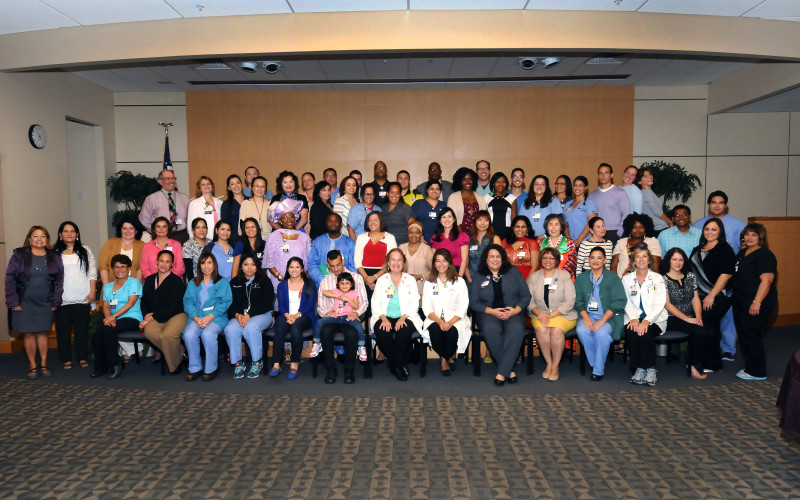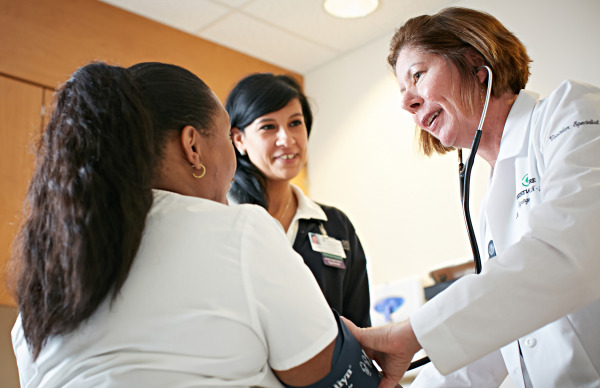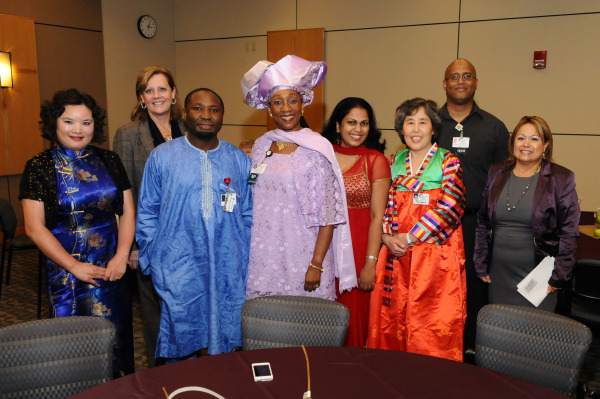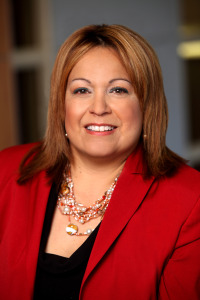LINCC program trains health care staff to be medical interpreters

As an advanced practice nurse in Employee Health, Tabe Mase frequently speaks French Creole to employees from Central and West Africa.
“It is comforting for people who aren’t feeling well to hear their native language,” said Mase, a native of Cameroon in central Africa, where she grew up speaking French and English.

Today, she and 69 others are qualified to interpret a collective total of 18 languages in various roles throughout the health system after successfully completing LINCC, a rigorous program to qualify interpreters.
The graduates and the managers who sponsored them gathered at the Language Interpreters Network of Christiana Care (LINCC) celebration at the John H. Ammon Medical Education Center on Sept. 30, International Translation Day. Many of the graduates wore clothing reflecting their cultures of origin. Mase wore an elaborate purple gown and matching head scarf.

“This is what diversity and inclusion looks like,” said Robert J. Laskowski, M.D., MBA, then-president and CEO of Christiana Care. He said that the program is a shining example of The Christiana Care Way.
There are now 18 languages Christiana Care’s staff can interpret, from Arabic to Yoruba, plus American Sign Language.
The innovative model also reflects Christiana Care’s status as a national leader in patient-centered, culturally competent care, said Rosa Colon-Kolacko, Ph.D., MBA, chief diversity officer and executive director of The Learning Institute.

The program has expanded Christiana Care’s in-house interpreting capability from two languages — Spanish and American Sign Language — to 18 languages, ranging from Arabic to Yoruba, a language spoken in Nigeria, Togo and the Republic of Benin. The new interpreters come from five continents and 26 countries.
The graduates completed 24 hours of classroom training, including such topics as interpreting techniques, ethics and cultural mediation and advocacy. They also passed written and oral examinations. Of the 70 staffers who successfully completed the program, 58 are qualified to provide medical interpretation for patients; 12 are qualified to interpret in non-medical encounters, and are called “patient access liaisons.”
Qualified interpreters play an essential role in patient safety, ensuring accurate communication between patients and their care providers, said Jacqueline Ortiz, director of cultural competence and language services. Hearing their own language also is an essential aspect of our patients’ experience.
“There is an automatic physical response,” she said. “You see the relaxing of the shoulders, a smile. They can concentrate on their health instead of worrying about not understanding their providers.”
In addition to the satisfaction of helping others, qualified interpreters will receive compensation for the extra work they do.
Ligia Han, a cardiac stenographer who was qualified in Spanish, said she sees a need for interpreters who can explain tests and procedures to patients who do not speak English.
“We find that when there is someone who understands their language patients are much less nervous when they are having a test,” she said.
Evalyne Mwangi, a registered nurse on a cardiac floor, said the process of becoming qualified to translate Swahili raised her awareness of the importance of cultural competency.
“Through the LINCC program, I’ve become more of a patient advocate,” Mwangi said. “I also believe that being part of the class has made me more sensitive to others.”